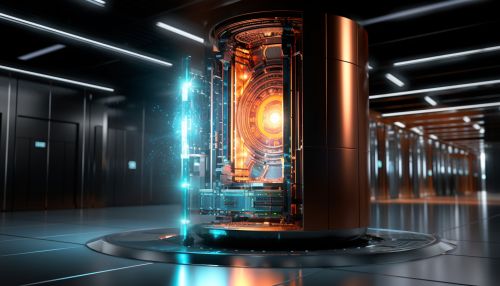Quantum Computing with Quantum Simulators
Introduction
Quantum computing is a rapidly evolving field that leverages the principles of quantum mechanics to perform computations. Unlike classical computing, which uses bits as the smallest unit of data, quantum computing uses quantum bits, or qubits, which can exist in multiple states at once due to a property known as superposition. This allows quantum computers to process a vast number of possibilities simultaneously, potentially solving certain types of problems much more efficiently than classical computers.


Quantum Simulators
Quantum simulators are a subfield of quantum computing that focus on using quantum computers to simulate quantum systems. This is a significant area of research because many problems in quantum mechanics are too complex to be solved analytically, and classical computers often struggle to handle the computational load required for these simulations. Quantum simulators, on the other hand, can potentially model these systems more accurately and efficiently due to their inherent quantum nature.
Quantum Computing Principles
Quantum computing operates on several key principles derived from quantum mechanics. These include superposition, entanglement, and quantum interference.
Superposition
Superposition refers to the ability of a qubit to exist in multiple states at once. In classical computing, a bit can be either a 0 or a 1. However, a qubit can be both a 0 and a 1 at the same time, thanks to superposition. This allows quantum computers to process a vast number of possibilities simultaneously.
Entanglement
Entanglement is another quantum phenomenon that quantum computers exploit. When qubits become entangled, the state of one qubit becomes directly related to the state of another, no matter how far apart they are. This interconnectedness can be used to perform complex calculations more efficiently.
Quantum Interference
Quantum interference is the principle that the probability amplitudes of quantum states can interfere with each other. This can be used in quantum computing to manipulate the probabilities of different computational paths, guiding the computation towards correct solutions and away from incorrect ones.
Quantum Simulators in Practice
Quantum simulators can be used to simulate a variety of quantum systems, including many-body systems, quantum field theories, and topological states of matter. They can also be used to simulate the dynamics of quantum systems, such as quantum phase transitions and quantum transport phenomena.
Many-Body Systems
Many-body systems are systems that consist of a large number of interacting particles. These systems are notoriously difficult to simulate on classical computers due to the exponential growth of computational complexity with the number of particles. Quantum simulators, however, can potentially simulate these systems more efficiently.
Quantum Field Theories
Quantum field theories are a type of physical theory that describes how quantum particles interact with each other. These theories are fundamental to our understanding of the universe, but they are also incredibly complex and difficult to simulate. Quantum simulators offer a promising avenue for exploring these theories in more depth.
Topological States of Matter
Topological states of matter are phases of matter that are characterized by topological order, a type of long-range quantum entanglement. These states have unique properties that make them of interest for quantum computing and quantum information processing. Quantum simulators can be used to study these states and explore their potential applications.
Challenges and Future Directions
Despite the potential of quantum simulators, there are still many challenges to be overcome. These include technical challenges related to the construction and operation of quantum computers, as well as theoretical challenges related to the development of efficient algorithms for quantum simulation.
Looking forward, quantum simulators are expected to play a key role in the development of quantum technologies. They offer a powerful tool for exploring quantum systems and could potentially revolutionize fields such as materials science, chemistry, and high-energy physics.
